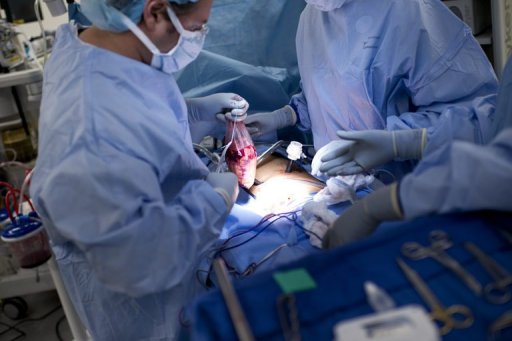(AFP) – The number of people in Britain donating their organs after death has surged 50 percent in the past five years, says the NHS Blood and Transplant service (NHSBT).
Each person who donates organs provides an overall average 56 years of extra life for the recipients, according to a specialist surgeon.
But doctors say the numbers of families refusing permission for organ removal remains among the highest in Europe and three people a day are still dying due to lack of suitable available organs.
The number of deceased organ donors across country reached 1212 in the 2012-13 year, up by half from 2007/08 after almost no increase in the number of deceased donors over the previous decade, the NHSBT said.
The sharp rise follows the appointment of a network of 250 specialist nurses who support bereaved families and discuss the possibility of organ donation with them.
“Delivering the 50 percent increase is a landmark event in donation and transplantation for the UK,” said Dr Paul Murphy, an intensive care consultant in Leeds.
“It is testament to the changes we have made at every level in hospitals to deliver this, to the commitment of critical care and emergency department staff to donation, and most of all to the generosity of donors and their families,” he said.
“But we can and must do more, because patients continue to die needlessly waiting for an organ transplant,” Murphy said.
Professor Anthony Warrens, Professor of renal transplantation medicine at Barts, said: “Data show that an individual who donates his or her organs after death gives the recipients an aggregate of an additional 56 years of life.
“And despite the sadness of the moment, this usually becomes a major comfort to bereaved families as time passes,” the professor added.
A new strategy is to be launched this summer that will build on the 2008 recommendations of the Organ Donor Taskforce and encourage more people to donate organs.

COMMENTS
Please let us know if you're having issues with commenting.